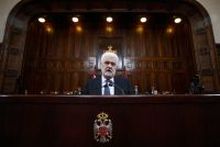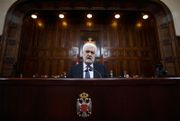- Serbia
Get to know Serbia
- Citizens
Culture and science
Health services
Pension and disability insurance
- Business
Employment
Economy
- Media
- Government
- Contact
Keep in touch
Contact form
Back
Keepin touch
Whether you have a question, comment, suggestion or any problem in the purview of the government, send us your message and we will try to respond as soon as possible. If your problem is not in our purview, we will forward your message to the relevant institution.
Q:
A:
Budget proposal for next year socially responsible
Belgrade,
26 December 2011
Prime Minister and Minister of Finance Mirko Cvetkovic called on members of the Serbian Parliament to vote for the Proposal of the budget law for 2012 and thus ensure normal functioning of the state and economy for next year.
Expounding this document in the Parliament, Cvetkovic said that the budget was prepared in the conditions of slow economic growth and the crisis in the Eurozone, adding that the projected growth of gross domestic product (GDP) for next year is 1.5%.
He specified that the 2012 budget envisages revenues of RSD 750 billion, expenditures of RSD 890 billion and a deficit of about RSD 140 billion, which will mostly be financed through borrowing.
On a consolidated basis, which includes local self-governments, Vojvodina and organisations of mandatory social insurance, the deficit will be RSD 152 billion, or 4.25% of GDP.
The projected level of deficit is lower than that allowed by fiscal rules, which reduces the need for government borrowing in the next year and leaves room for adjustments in the conditions of increased risk of recession in Europe and worldwide, Cvetkovic explained.
Cvetkovic noted that almost the entire deficit will be used for capital investments and as an incentive to the domestic demand in order to raise Serbia’s economic activities.
He stressed that the budget proposal for 2012 is socially responsible, adding that this document envisages an increase in salaries, pensions and other social contributions in April and October by 5.5% at the annual level.
The government continues with its consistent implementation of the savings politics, which has been led since 2009, Cvetkovic underlined, adding that the anti-crisis politics for 2012 envisages savings measures for the economy, agriculture and the construction industry in the form of subsidies and favourable credit lines.
Cvetkovic said that the government does not plan to increase taxes or introduce new ones which would negatively affect the work of companies, adding that there will be more incentives aimed at attracting investments.
A combination of these measures will enable an increase in exports and the creation of new jobs, while investments in infrastructure and development programmes will help to preserve employment and citizens’ standard, the Prime Minister observed.
Speaking about the budget structure, he said that 41.8% of expenditures have been envisaged for social care, 15.3% for defence, public order and safety, 15.3% for education and science, 10.4% for incentives, 3.8% for transfers to other levels of government, 3% for administrative expenses and 10.4% for other functions.
He specified that the 2012 budget envisages revenues of RSD 750 billion, expenditures of RSD 890 billion and a deficit of about RSD 140 billion, which will mostly be financed through borrowing.
On a consolidated basis, which includes local self-governments, Vojvodina and organisations of mandatory social insurance, the deficit will be RSD 152 billion, or 4.25% of GDP.
The projected level of deficit is lower than that allowed by fiscal rules, which reduces the need for government borrowing in the next year and leaves room for adjustments in the conditions of increased risk of recession in Europe and worldwide, Cvetkovic explained.
Cvetkovic noted that almost the entire deficit will be used for capital investments and as an incentive to the domestic demand in order to raise Serbia’s economic activities.
He stressed that the budget proposal for 2012 is socially responsible, adding that this document envisages an increase in salaries, pensions and other social contributions in April and October by 5.5% at the annual level.
The government continues with its consistent implementation of the savings politics, which has been led since 2009, Cvetkovic underlined, adding that the anti-crisis politics for 2012 envisages savings measures for the economy, agriculture and the construction industry in the form of subsidies and favourable credit lines.
Cvetkovic said that the government does not plan to increase taxes or introduce new ones which would negatively affect the work of companies, adding that there will be more incentives aimed at attracting investments.
A combination of these measures will enable an increase in exports and the creation of new jobs, while investments in infrastructure and development programmes will help to preserve employment and citizens’ standard, the Prime Minister observed.
Speaking about the budget structure, he said that 41.8% of expenditures have been envisaged for social care, 15.3% for defence, public order and safety, 15.3% for education and science, 10.4% for incentives, 3.8% for transfers to other levels of government, 3% for administrative expenses and 10.4% for other functions.
-
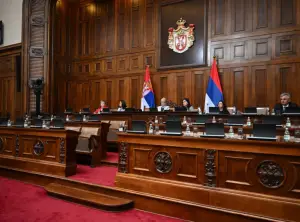 Belgrade, 7 November 2025
Belgrade, 7 November 2025Parliament adopts multiple laws
-
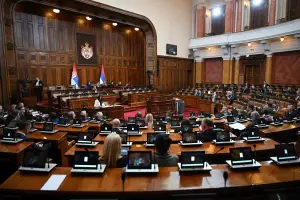 Belgrade, 22 October 2025
Belgrade, 22 October 2025Parliament adopts several laws, ratifies multiple international agreements
-
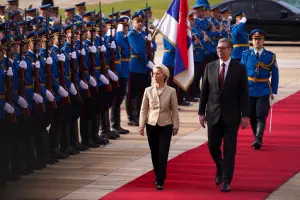 Belgrade, 15 October 2025
Belgrade, 15 October 2025Vučić welcomes Ursula von der Leyen in front of Palace of Serbia
-
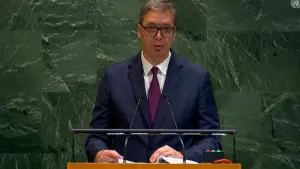 Belgrade/New York, 24 September 2025
Belgrade/New York, 24 September 2025Respect for UN Charter obligation of all countries
-
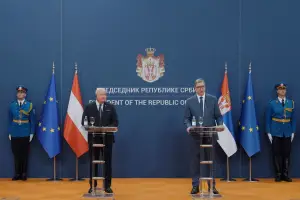 Belgrade, 13 August 2025
Belgrade, 13 August 2025High level of understanding, agreement between Serbia, Austria
-
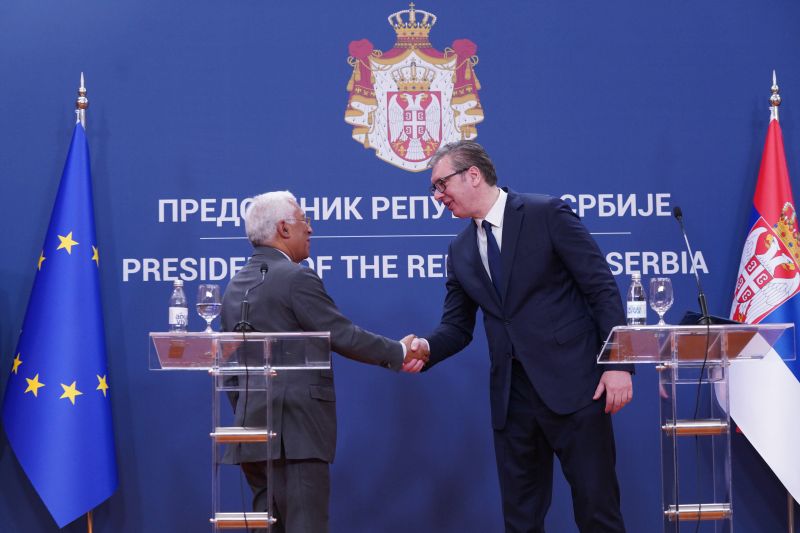 Belgrade, 13 May 2025
Belgrade, 13 May 2025Serbia's sincere, firm commitment to European path, reforms and dialogue
-
 Belgrade, 13 May 2025
Belgrade, 13 May 2025Vučić welcomes European Council President in front of Palace of Serbia
-
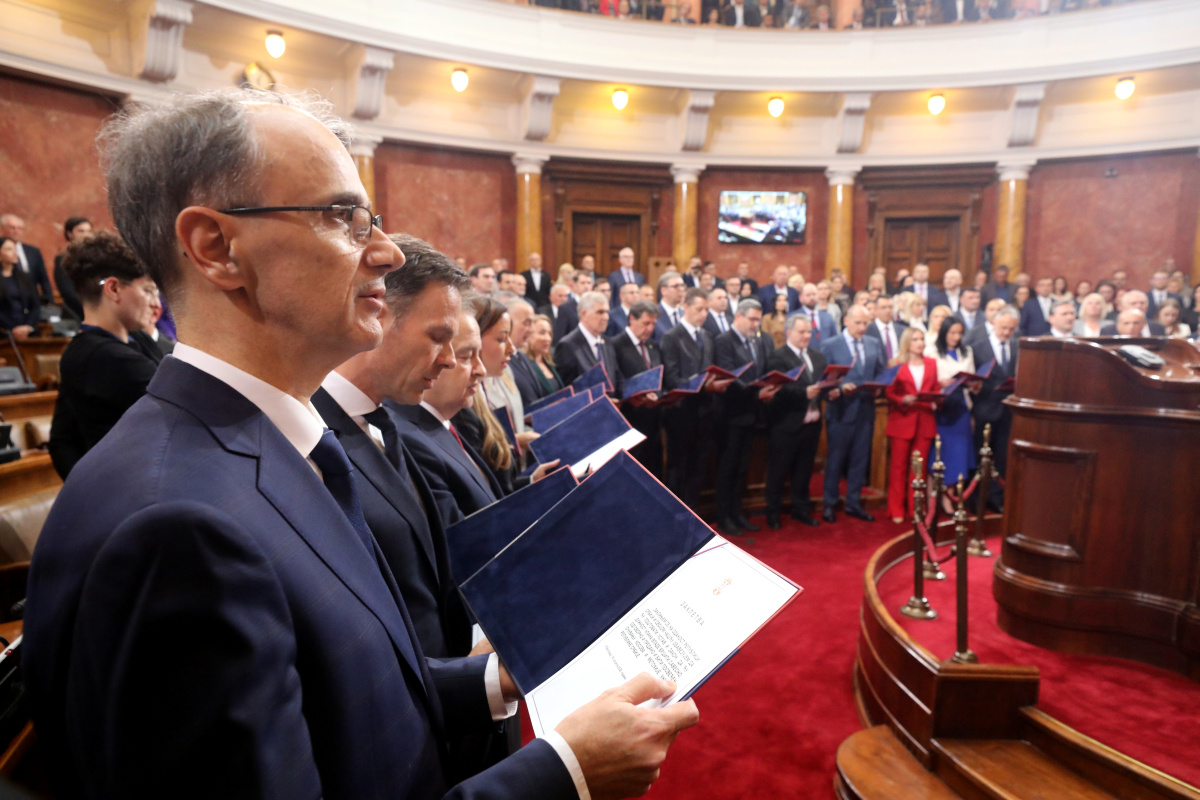 Belgrade, 16 April 2025
Belgrade, 16 April 2025New Serbian government voted in
-
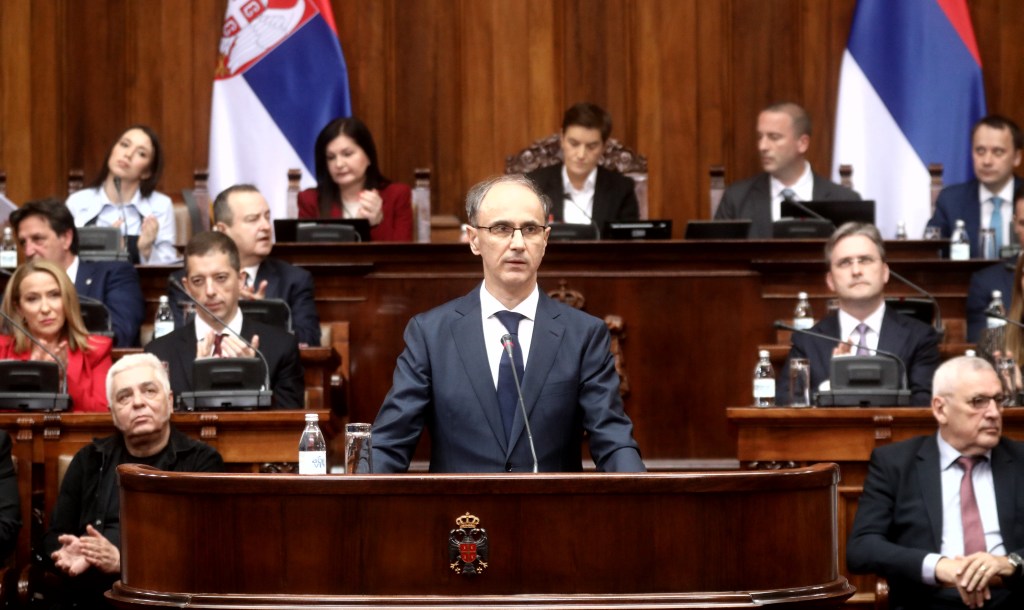 Belgrade, 15 April 2025
Belgrade, 15 April 2025Building unity through dialogue, tolerance, respect for value system
-
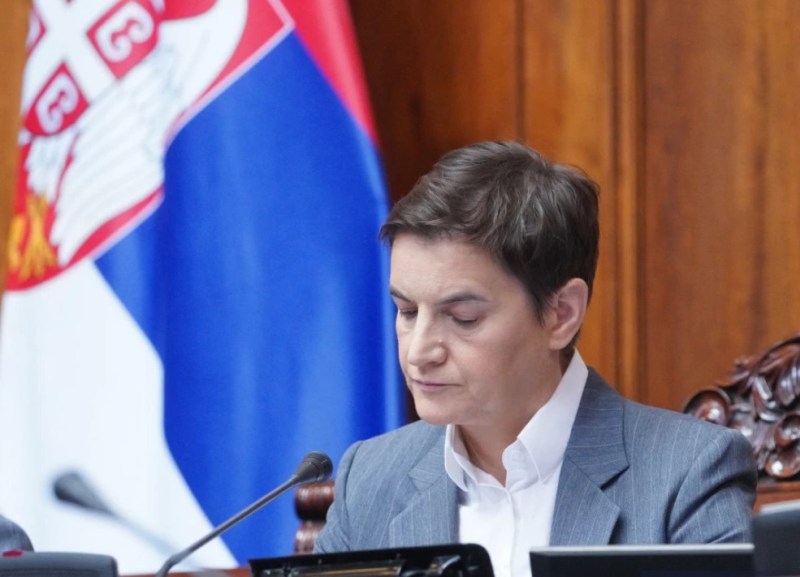 Belgrade, 14 April 2025
Belgrade, 14 April 2025National Assembly speaker convenes session on government election

